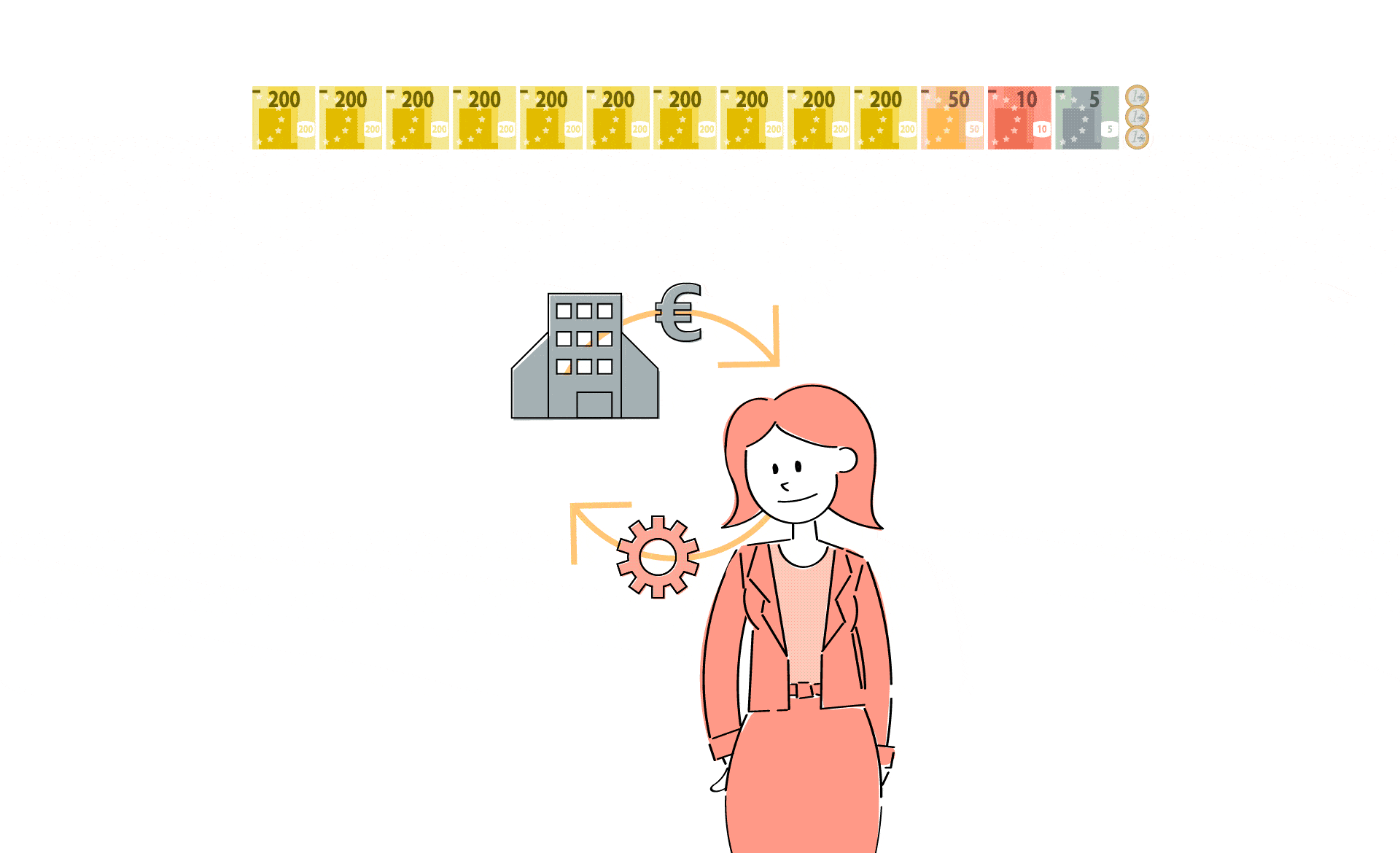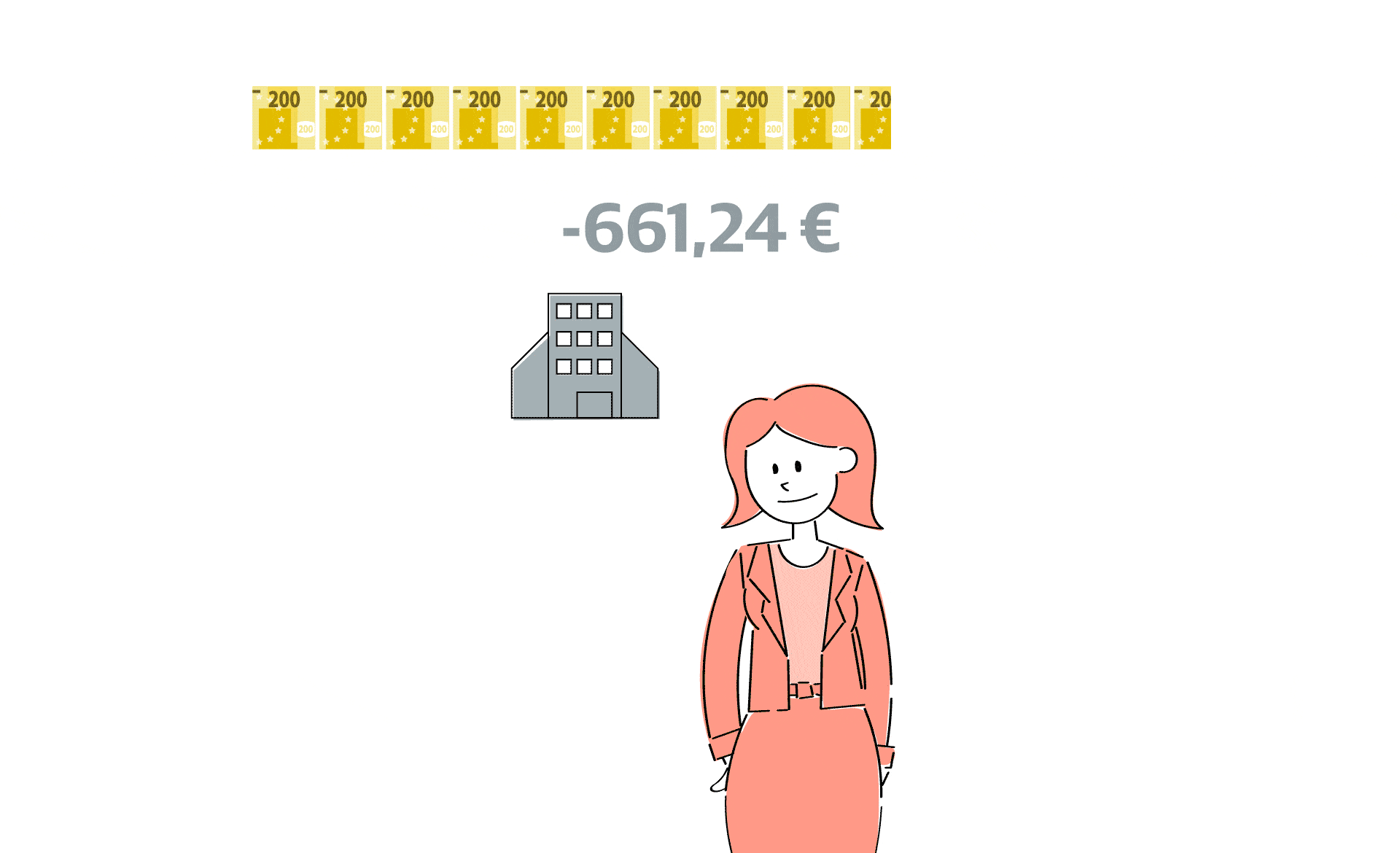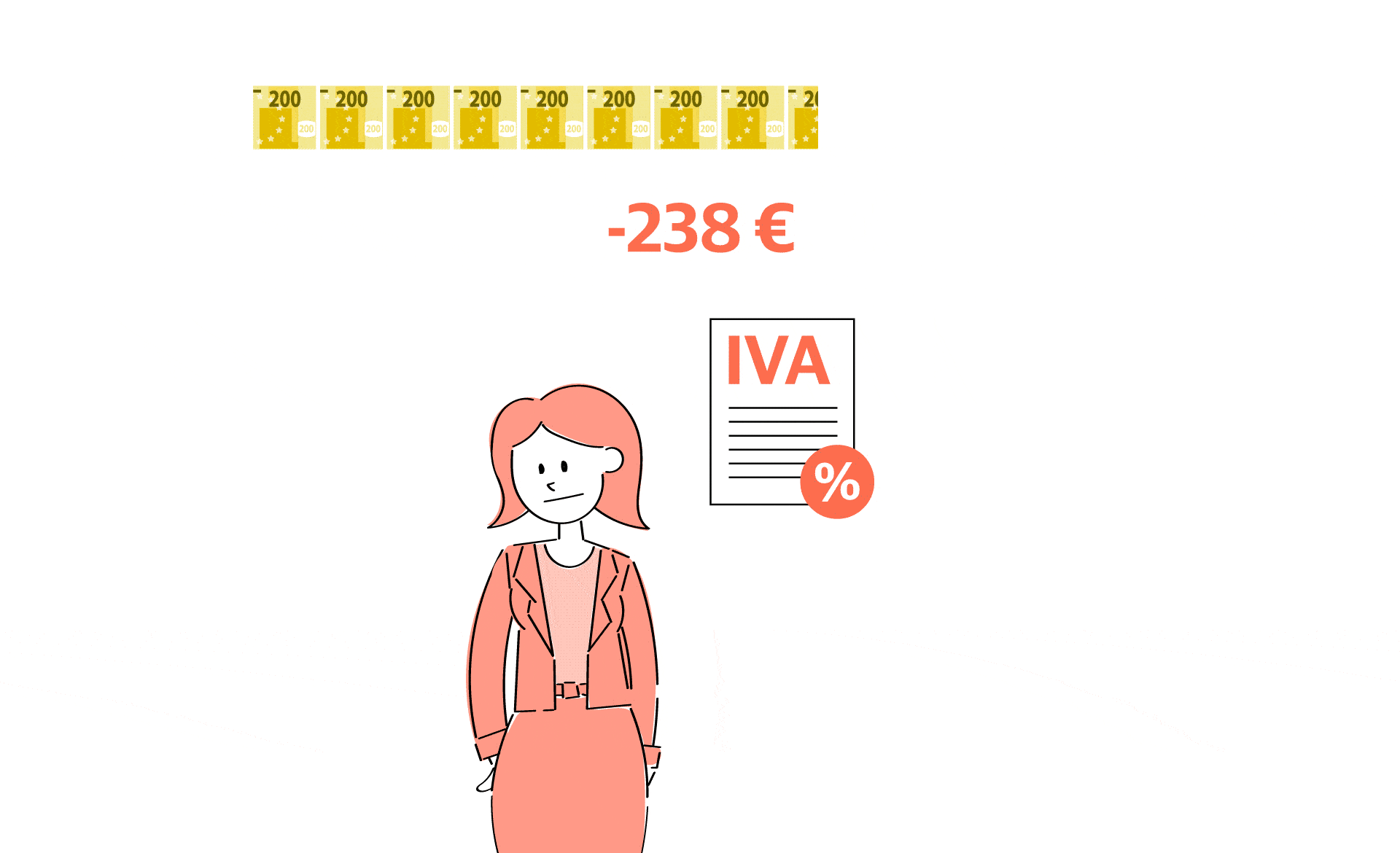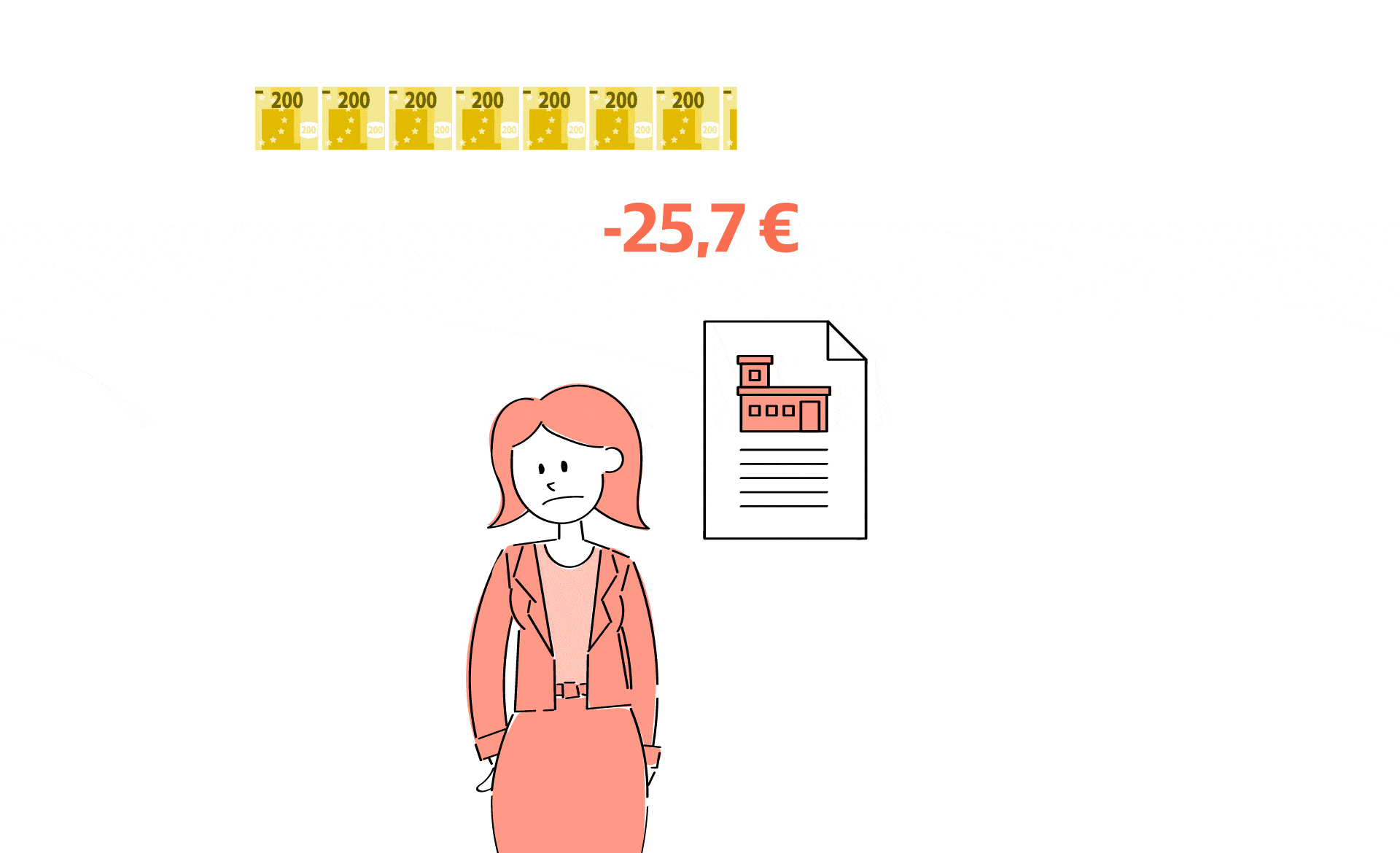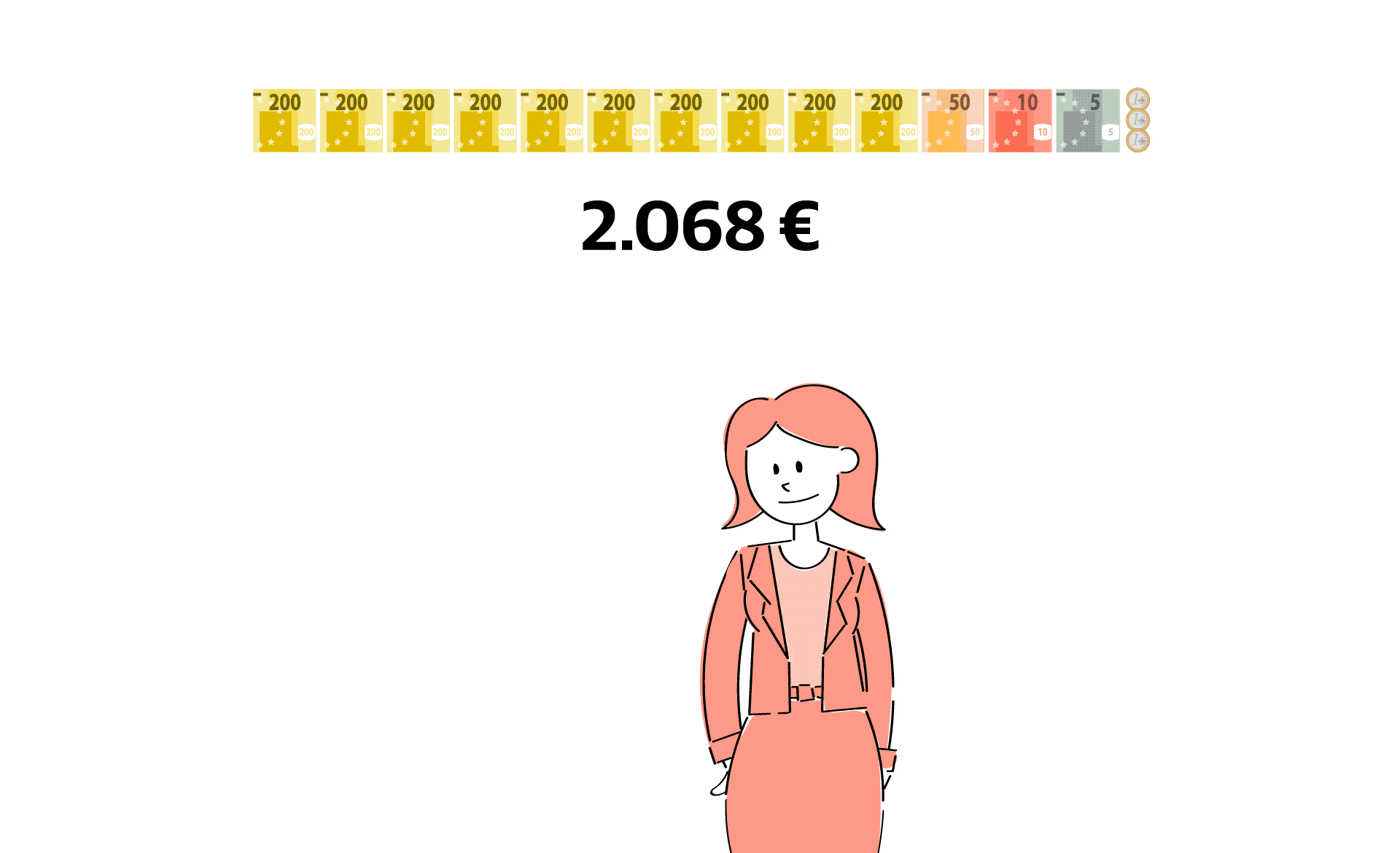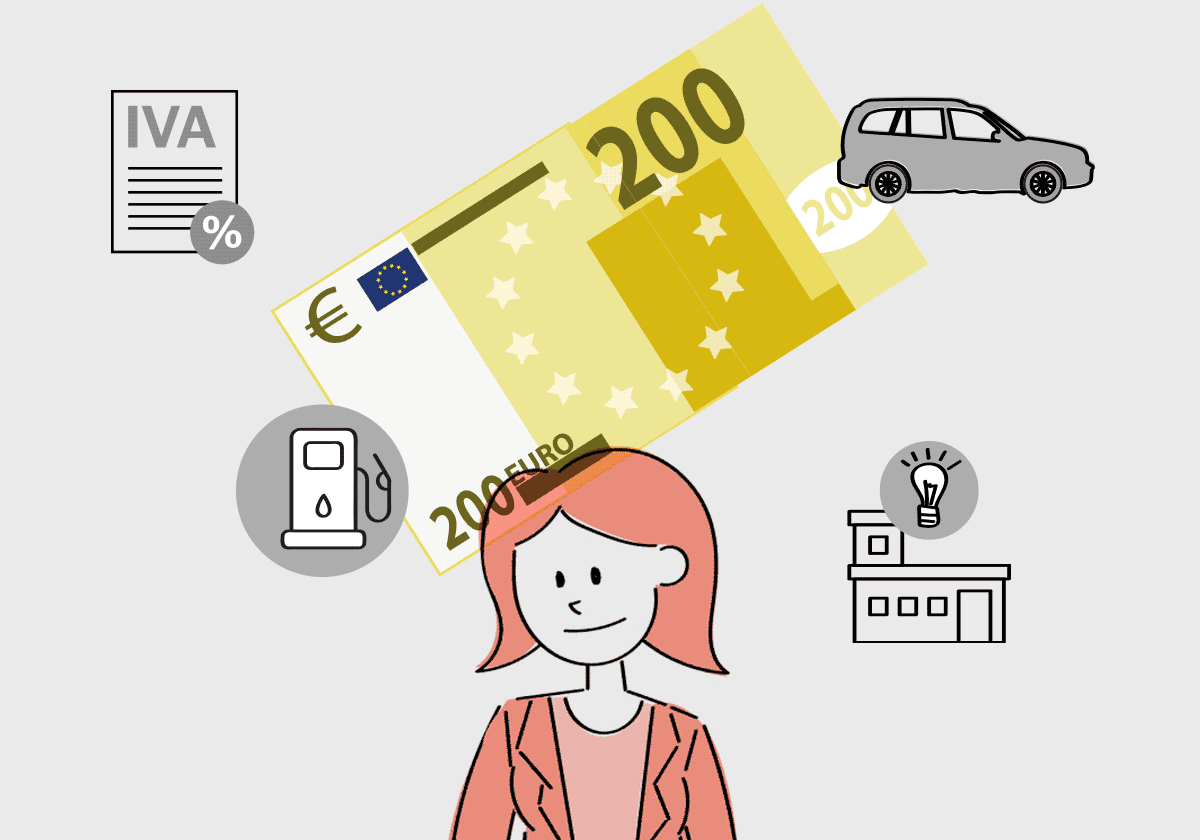The average worker in Malaga province gives a third of their salary to the taxman
The tax burden in Spain is lower than the European average, but when compared to per capita income, the tax sacrifice is among the highest
The protagonist in this report represents the average woman, starting with her first name which is the most common in Malaga and continuing with her surname, García, the most common in the province. María is employed in retail (the sector of the economy that provides the most employment locally and earns 24,812 euros gross per annum which is the average salary in Malaga province. This annual income, if divided into twelve payments, is equivalent to 2,068 euros per month.

María isn't a real person but there are many real life 'Marías' in Malaga province.
Income: 2,068 euros
She earns 24,812 euros gross per annum which is the average salary in Malaga province. This annual income, if divided into twelve payments, is equivalent to 2,068 euros per month.
María is employed.
AUX STEP FOR JS
How much of this gross income stays in María's pocket and how much goes to the state coffers in taxes? This is the question we are going to answer with the help of a veteran tax advisor, Rubén Candela, who does the tax calculations in this simulation.
Social Security
The first 'bite' of María's wages comes even before it is paid into her bank account. From her gross salary, the company deducts social security contributions, which is the tax used to finance the social security system. Unemployment benefits, pensions and financial benefits for temporary incapacity due to common illness and accidents at work, among others, come out of the social security fund.
These social contributions are made up of two parts: the part paid by the employer (which is the larger part) and the part paid by the employee.
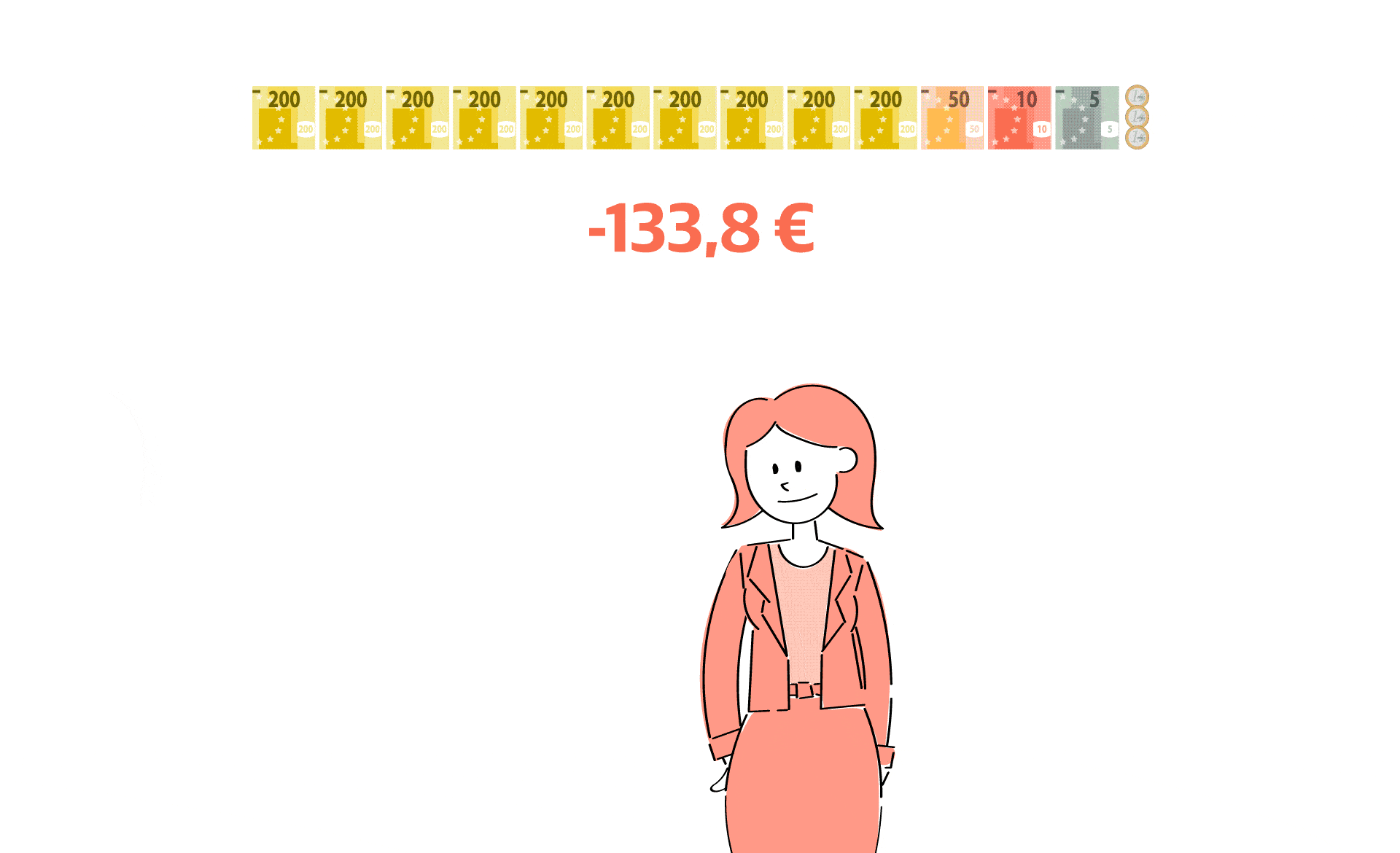
As a worker, María will have 133.8 euros withheld monthly, 6.5% of her gross salary.
661.24 euros each month to the General Treasury of Social Security.
AUX STEP FOR JS
If María were self-employed instead of an employee, she would have to pay social security contributions herself. "The self-employed now calculate their contribution according to bands and pay 31.3% of the base, which they can set within the band of their monthly income. In our example, it would be the band between 2,030 and 2,330 euros. The monthly contribution you would have to pay would be 647.07 euros per month," explains Rubén Candela.
What if María were receiving unemployment benefit? In this case, the public employment service would act as the employer and pay the employer's contributions, while she would have a lower percentage withheld than active workers: 4.8%, equivalent to 99.7 euros. If, on the other hand, our taxpayer were retired, the Social Security would not touch a single euro of her pension.
Income
Social security contributions are not the only deduction on María’s salary slip. The tax authorities also take their share, withholding a percentage of the employee’s income from the annual personal income tax (IRPF) bill. This monthly wage retention varies from case to case and, when the income tax return is filed, the tax office calculates whether the amount withheld over the previous year was lower or higher than the taxpayer’s personal income tax liability. As a result, some taxpayers have to pay and others get a refund.
In our case study, we will apply the actual personal income tax bill and not the retention.

María is married.
and has two, under-aged children (slightly over the average).
The tax office takes 242.8 euros a month.
AUX STEP FOR JS
This amount would be reduced to 174.4 euros if your partner has no income and you both file a joint return. If you had no children, you would have to pay almost 30 euros more tax per month: 284.1 euros.
VAT
María García has already had her net salary paid into her account: of the 2,068 euros gross that she is entitled to, she has 1,691.4 euros available. But she has not yet finished paying taxes. Every time you buy a product or contract a service, you will be contributing to value added tax (VAT, or IVA as it is known in Spain). It is difficult to calculate the average amount of money spent on this tax, as the rates vary from product to product: 4% applies to basic necessities, 10% to other foodstuffs and a range of other services such as catering and transport, and 21% to all others.
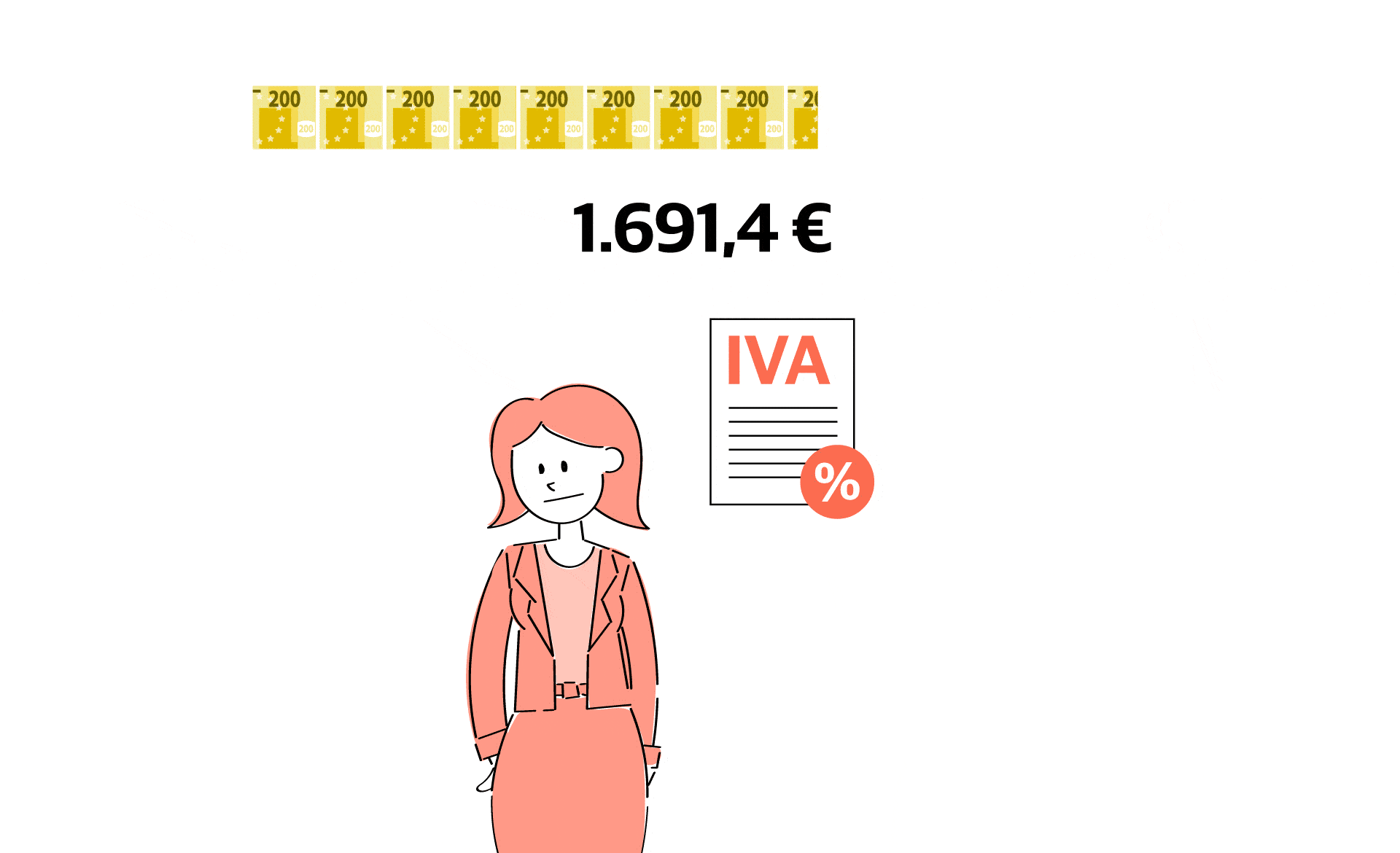
The amount of this tax can be estimated using the average per household in Spain.
According to a study by Funcas, each household in Spain pays an average of 238 euros per month in VAT.
AUX STEP FOR JS
This tax bill has increased significantly in recent years due to inflation: in 2022 alone, for example, it rose by 10.2%. If Maria were to share the household expenses with her partner, her VAT contribution would be half of the above figure, i.e. 119 euros per month.
Electricity
The list of taxes continues with the one specifically levied on electricity consumption (in addition to VAT). This is 'peccata minuta'. The standard rate of electricity tax is 5.113%. However, as it is a special tax, it is subject to VAT. Its real rate was 6.186% (VAT is no longer 21% of the bill, but 5%, as it is subsidised). But since September 2021, it has been reduced to 0.5%
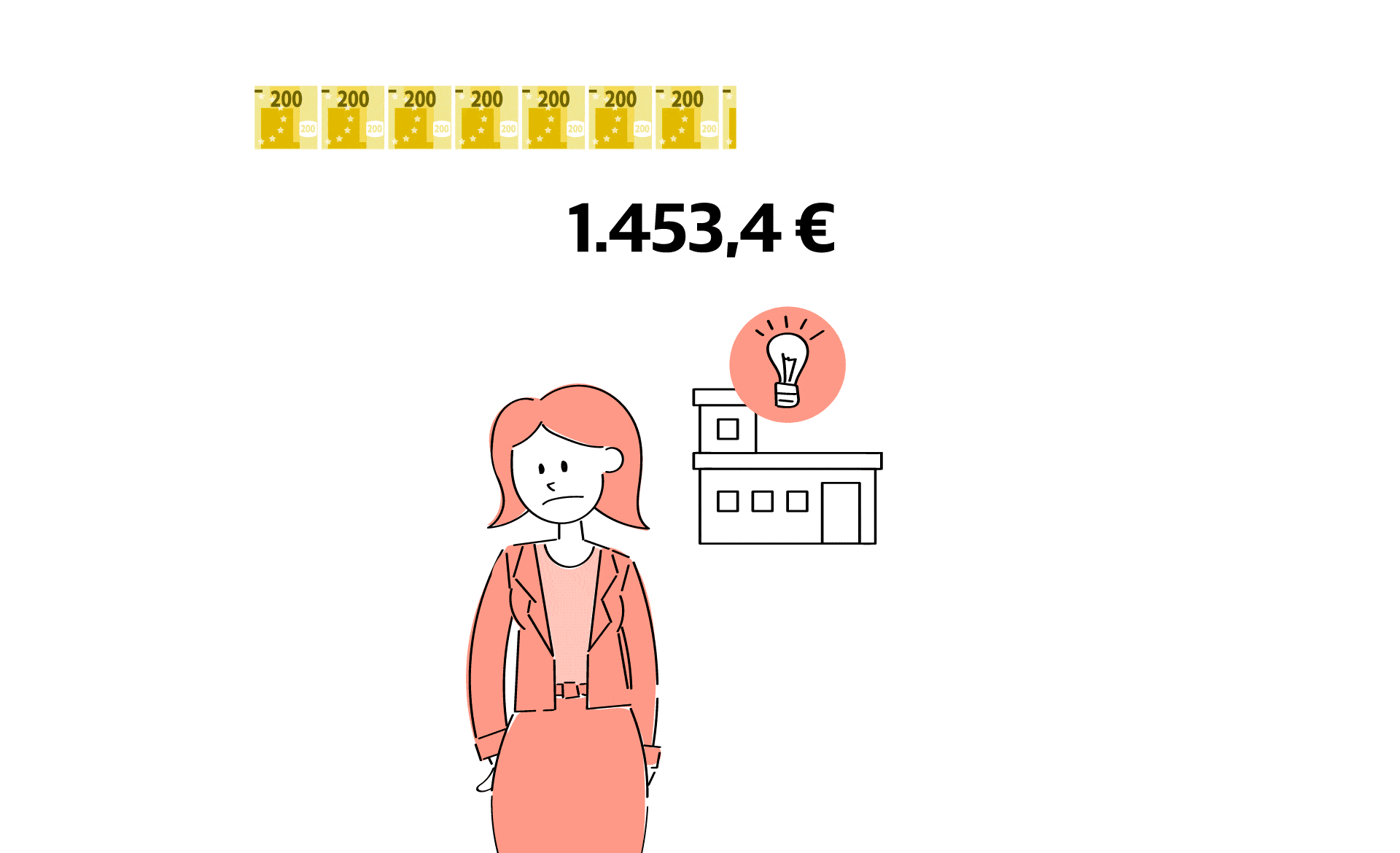
In short: as María has the average electricity bill in Spain, which is 63.1 euros per month...
she pays 1.58 euros per month in electricity tax.
AUX STEP FOR JS
Rates
Let's go now to a municipal tax. As María follows the average in all aspects of her life, she lives in a house she owns (mortgaged, of course). So every year she has to pay the rates (IBI).
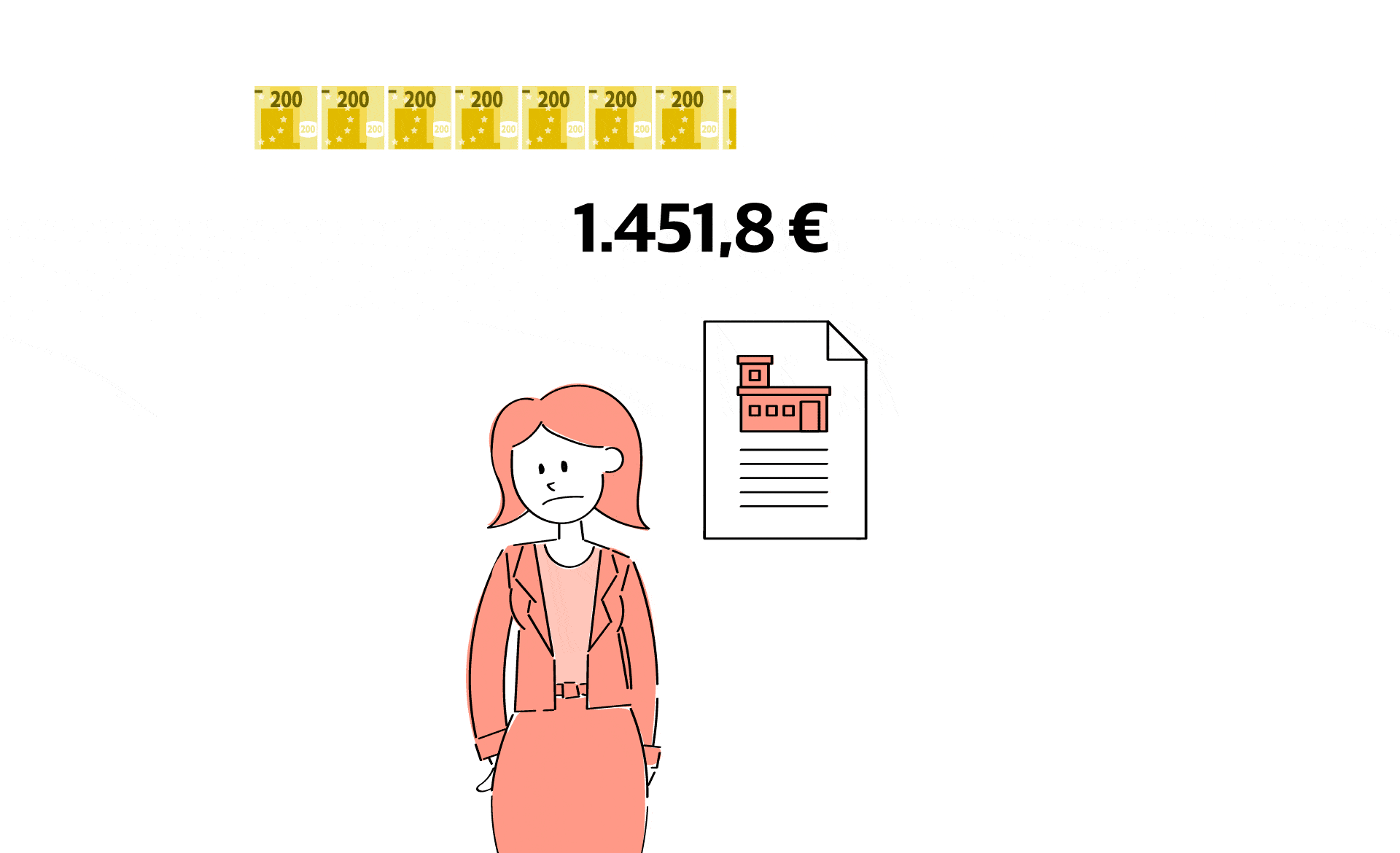
As the average annual receipt of this tax in Malaga city is 308.4 euros...
the monthly amount is equivalent to 25.7 euros.
AUX STEP FOR JS
Road tax
Also of a municipal nature is the 'tax on vehicles of mechanical traction'. And since María has a car, another small part of her salary goes to pay this tax. In the city of Malaga, drivers pay 65.8 euros a year if they have a low-capacity car and 138.9 euros if it is of the most powerful range. .
.
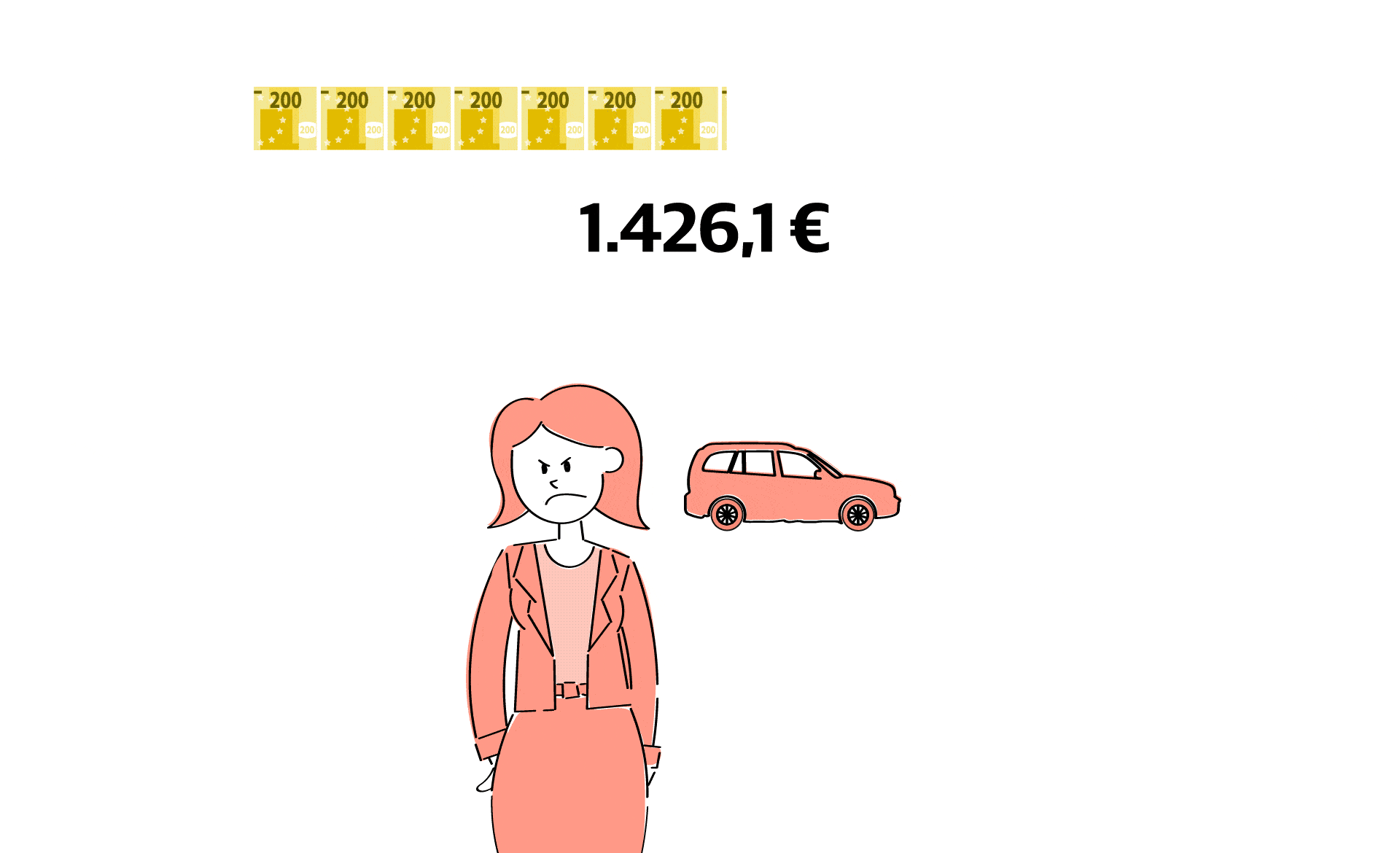
On average, it is 102.35 euros per year.
Or 8.5 euros per month.
AUX STEP FOR JS
Special tax on fuel
But that's not the end of the tax bill for owning a car: every time she fills up her tank, Maria contributes to the treasury through the special tax on hydrocarbons. To calculate how much she pays per month, we take the average distance travelled per driver per year in Spain, which is 11,204 kilometres. This mileage is equivalent to a consumption of 852 litres of petrol.
.
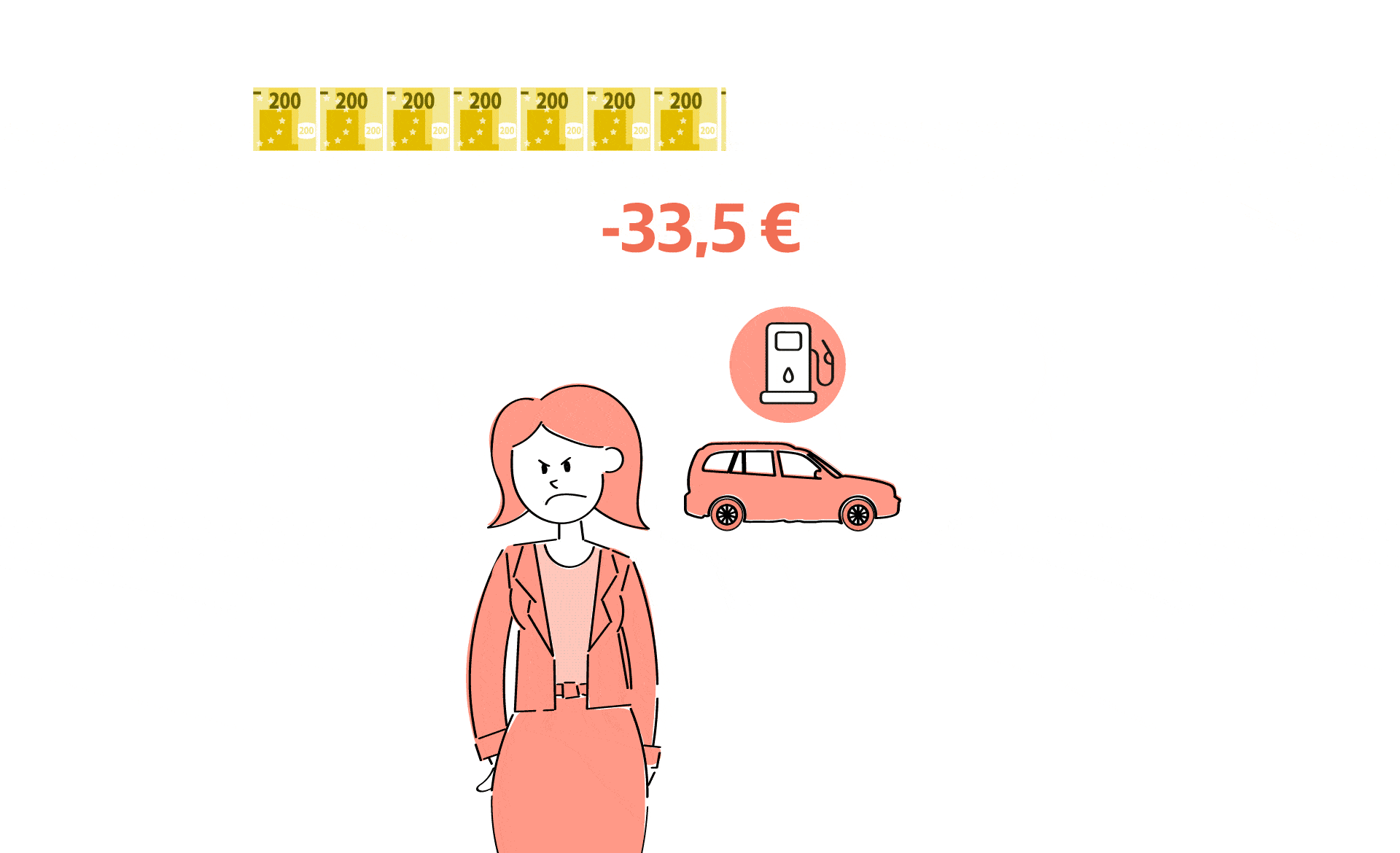
For this amount of fuel, the aforementioned tax would amount to 402.5 euros per year, 33.5 euros per month.
AUX STEP FOR JS
And so we come to the end of this subtraction.

Of the 2,068 euros that Maria has earned for her work...
683.9 euros have gone to the state coffers.
AUX STEP FOR JS
In other words: she has devoted a third of her income to paying taxes.
Is this a little or a lot? As José Juan Benítez Rochel, professor of Applied Economics at the University of Malaga, says, "the answer is: it depends": on who we ask, which country we compare ourselves to or even how we compare ourselves. The expert explains that in terms of tax burden (which is defined as the percentage that taxes represent of GDP), Spain is one of the last countries in the European Union: it has 38%, which is below Germany (42%), Italy (43%), or France (48%), as well as the EU average (41%). But if what is measured is the tax sacrifice (i.e. the percentage that the tax burden represents of per capita income), Spain is above the European average (with 0.125 %).
Epilogue: María is not a smoker, but if she were, another tax charge would be added. And it would not be small.

Buying a pack a day,...
she will pay 89.5 euros a month for the special tax on tobacco products.
AUX STEP FOR JS
Author's own elaboration calculating the averages of data obtained from various agencies. The income hypothesis (24,812 euros per year) is the average salary of Malaga workers, according to the IECA. Divided in 12 months: 2,068 euros per month. The rest of taxes have been calculated according to the national and provincial average of each tax.
¿Tienes una suscripción? Inicia sesión




